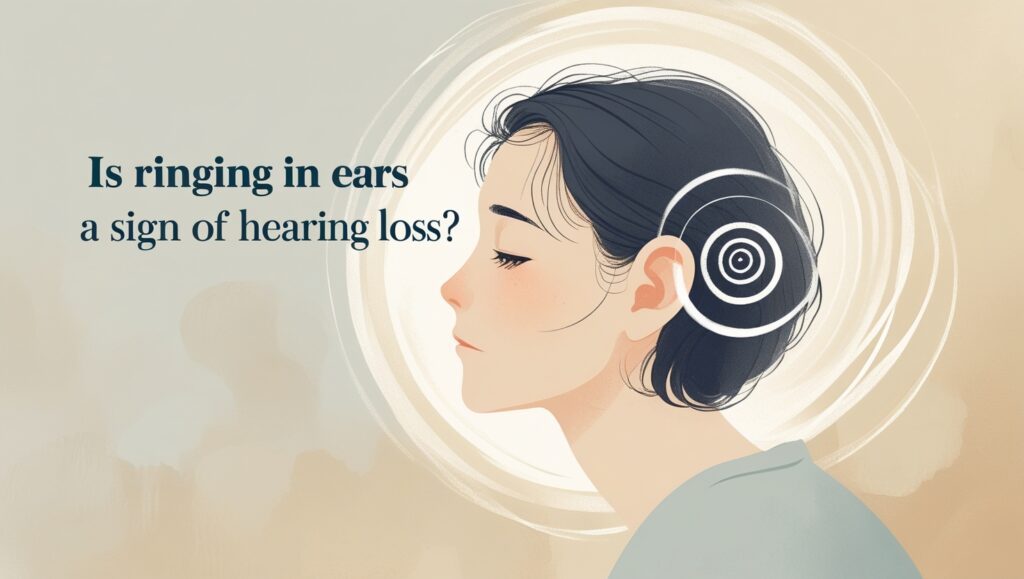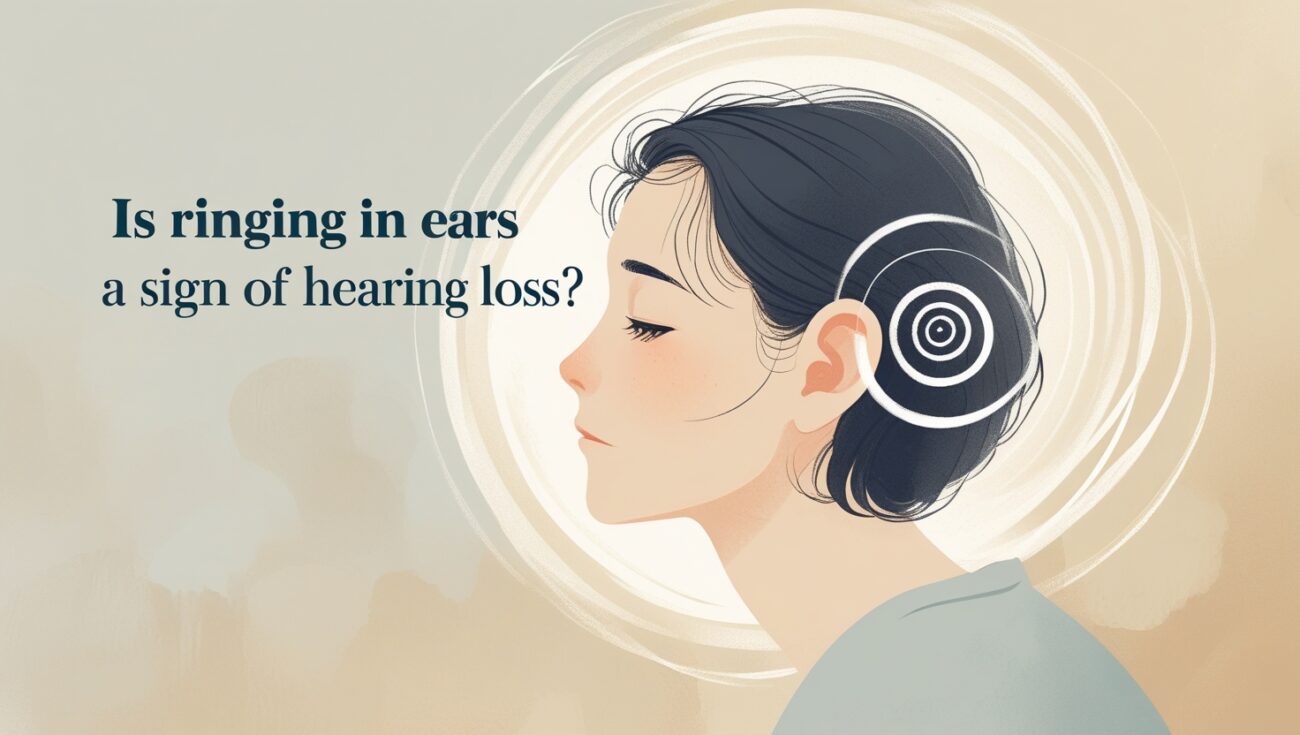Is Ringing in Ears a Sign of Hearing Loss?
When I first noticed the constant ringing in my ears, I’ll be honest — I was worried. The question that kept running through my head was:
“Is ringing in ears a sign of hearing loss?”
Like many people dealing with tinnitus, I didn’t know much about what causes it — or what it meant for my hearing health.
After doing a lot of research, talking to my doctor, and trying different things (including Quietum Plus, which really helped me), I finally have a much better understanding of how tinnitus and hearing loss are connected.
If you’re wondering about this too — I hope what I share here helps you. And if you want to give your hearing extra support, here’s what I personally use:
Quietum Plus — Official Site

Table of Contents
The Connection Between Tinnitus and Hearing Loss
Here’s what I learned:
Ringing in the ears (tinnitus) is often linked to hearing loss — but not always.
Tinnitus can sometimes be one of the first signs of hearing damage. When the delicate hair cells in the inner ear are damaged (by noise, age, or other factors), your brain may start to “hear” sounds that aren’t really there — like ringing, buzzing, or humming.
When Tinnitus Is (and Isn’t) a Sign of Hearing Loss
In my case, my hearing test showed mild high-frequency hearing loss — which explained why I was hearing that annoying ringing sound all day.
But here’s the thing:
✅ Many people with normal hearing still get tinnitus — especially if it’s caused by stress, poor circulation, inflammation, or nerve issues.
✅ And some people with hearing loss never develop tinnitus.
So while they often go together, one doesn’t automatically mean the other.
Why Early Action Matters
I also learned that protecting your ears early is key — because hearing loss and tinnitus can both get worse if you don’t take action.
That’s why I started using Quietum Plus every day — to support my nerve health, circulation, and reduce the inflammation that can damage the ears even more.
Here’s the one I trust:
Quietum Plus — Official Site
My Personal Results
Since I started protecting my hearing and taking Quietum Plus, my tinnitus has definitely improved. The ringing is softer, less frequent, and some days it’s almost gone.
More importantly, my hearing hasn’t gotten worse — in fact, I feel like it’s sharper now than it was before. That gives me real peace of mind.
Final Thoughts
So — is ringing in ears a sign of hearing loss?
✅ It can be — but not always.
If you’re hearing ringing, it’s definitely a sign that your ears need some support — whether you have hearing loss or not.
And if you want to protect your hearing health and quiet the noise, I highly recommend trying what’s worked for me:
Quietum Plus — Official Site
One of the first things I realized is that hearing loss can happen gradually — you may not even notice it at first. For me, the ringing in my ears was one of the first signs that something was off.
When I got my hearing checked, my doctor explained that tinnitus often shows up when certain frequencies in your hearing are starting to weaken. Your brain “fills in the gaps” with sounds that aren’t really there — like ringing or buzzing.
That made me realize just how important it is to protect your ears before things get worse. The sooner you take action, the more hearing you can preserve — and the better chance you have to calm the tinnitus.
I also learned that tinnitus can be caused by more than just noise damage — things like poor circulation, nerve issues, stress, and inflammation can all play a role. That’s why I wanted a product like Quietum Plus that addresses ALL those factors.
I also found out that high blood pressure can contribute to both hearing loss and tinnitus — so I started being more mindful of my overall health, not just my ears.
Another thing that surprised me: ear infections and sinus issues can sometimes trigger temporary tinnitus — which is why it’s important to treat those problems early.
Since taking better care of my hearing health (and using Quietum Plus daily), I’ve had far fewer tinnitus flare-ups — and my hearing clarity has definitely improved.
One thing I’ve noticed in online forums is that people who take a whole-body approach (diet, stress management, supplements like Quietum Plus) tend to report better results with both tinnitus and hearing loss.
I also make a point of using ear protection whenever I’m in noisy places now — even mowing the lawn or using a blender can affect your hearing over time!
Staying hydrated has helped too — better hydration means better blood flow to the ears, which supports nerve health.
I also cut back on caffeine and alcohol, which both seemed to make my tinnitus louder on bad days.
Since taking Quietum Plus, I’ve noticed a lot more “quiet mornings” — and I wake up feeling more rested, without that annoying ringing in my ears.
For me, the most encouraging thing is that I feel like I’m actively supporting my hearing health — instead of just waiting for it to get worse.
I also try to avoid stress triggers as much as I can — because stress definitely makes both tinnitus and hearing issues worse for me.
Learning about the connection between tinnitus and hearing loss helped motivate me to take my daily Quietum Plus — I don’t want to wait until more damage happens.
I also learned that even if you don’t have obvious hearing loss yet, tinnitus is still a sign that your ears need support — so it’s better to start early.
If you’ve been wondering about this too — I’d say don’t ignore the signs. The sooner you start protecting your hearing, the better your long-term results will be.

